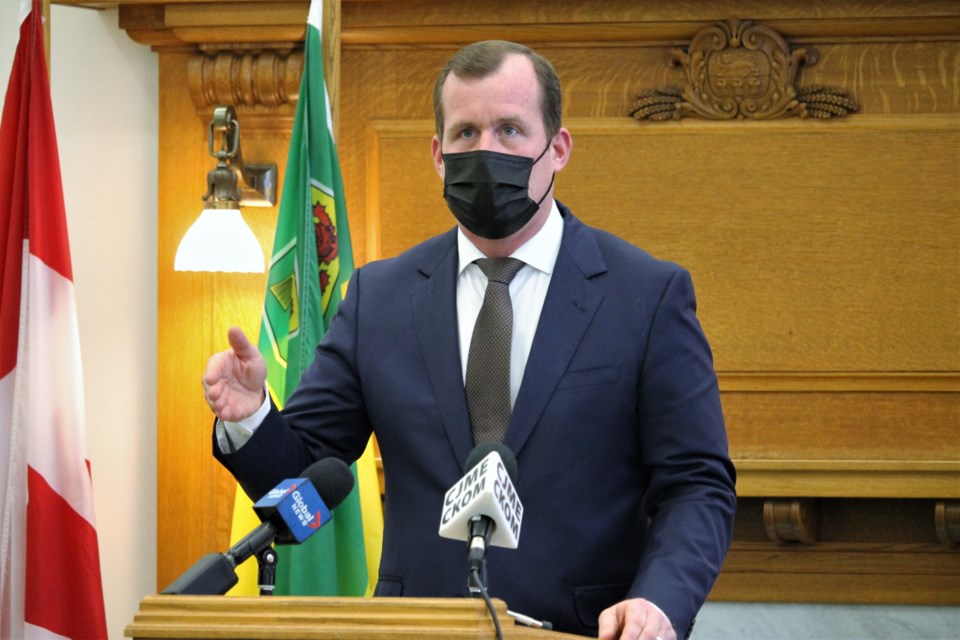REGINA — The Saskatchewan NDP are repeating a call to the provincial government for cross-party collaboration to offer supports to Ukraine and Ukrainian refugees, first issued last week.
Opposition finance critic Trent Wotherspoon spoke on March 1, asking Premier Scott Moe and the Saskatchewan Party to “set aside any politics” and agree to work together to address Ukraine’s needs in the face of the invasion ordered by Russian president Vladimir Putin.
“We should be meeting as a government, in a bipartisan way, assessing all of the levers and impact that we have as a province, and making sure all options are on the table to end this war,” said Wotherspoon.
Wotherspoon repeated several times that the Sask NDP intends to avoid politicizing the conflict currently taking place in Ukraine, in the interest of providing needed aid both to Ukrainians overseas and the people of Saskatchewan.
The Sask NDP are looking for clear and concise action on providing supports to Ukraine from the Saskatchewan government, said Wotherspoon.
“We are calling on the provincial government to use all the levers we have to work towards ending this war,” said Wotherspoon.
These levers include leveraging the province’s trade markets and international offices, which Wotherspoon said should be targeting industries that utilize Russian imports and expanding export partnerships to reduce Russia’s financial income.
“We supply the world with many of the same things Russia does, when we look at potash and energy, grains, food,” said Wotherspoon. “We would like to fill that space, providing those goods [and] in essence, choking the funding in Putin’s war.”
Wotherspoon also asked the provincial government to pledge to meet any donations made by the public to the Canada-Ukraine Foundation, to help meet its $5 million goal for humanitarian assistance.
The provincial government has said that a donation of $100,000 was made to the Ukrainian Canadian Congress’s humanitarian aid fund in January, and that the province plans to place priority on Ukrainian applicants that come to the provincial Immigrant Nominee Program.
SaskTel has also waived long distance charges for phone calls and texts between Canada and Ukraine, as wella s roaming fees in Ukraine, until further notice.
Wotherspoon also said the NDP want to see more details on how the government plans to support potential incoming refugees, further than just expediting applications.
He said that in addition to cooperation with federal entities, on-the-ground support on a provincial level will be necessary, including providing resources to organizations that help settle newcomers and a clear process of application for acceptance into Saskatchewan.
Wotherspoon said the NDP have received calls from some Saskatchewan residents with family in Ukraine, asking questions on the process and timeline of the refugee application for their loved ones overseas.
“Saskatchewan can play a very large role on this front,” said Wotherspoon. “We need to make sure we have the supports in place now [and] really what we need is to make sure that there’s a route for those refugees.”
The Sask NDP are also looking to be included on the Saskatchewan-Ukraine Relations Advisory Committee, making it a bi-partisan group that liaisons with the provincial government.
“The interest of Ukraine, our world, Saskatchewan people are at stake and if there’s important decisions to be considered [then] we can do that best by working together,” said Wotherspoon.
Wotherspoon said the opposition has not received any response yet from the Sask Party regarding a non-political collaboration on these issues, but that the Sask NDP remains “steadfast in our commitment” to do so.




